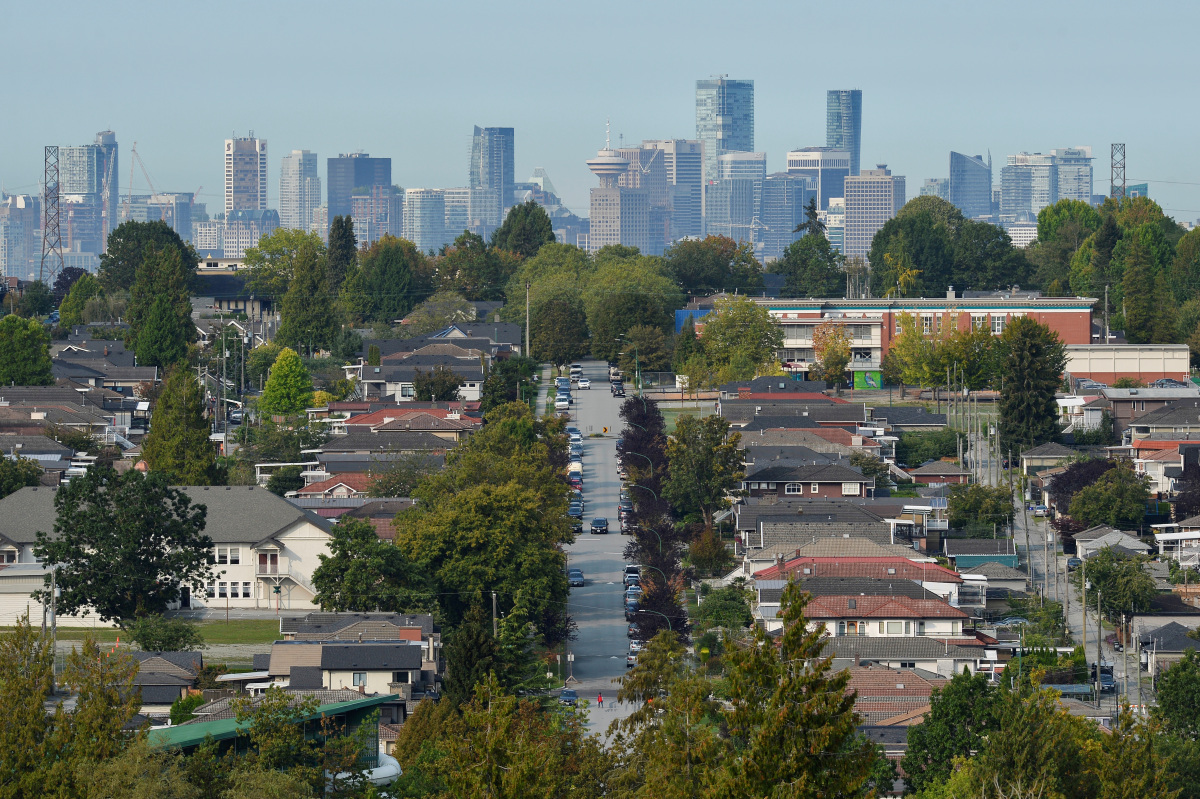Once burning-hot Canadian house prices are expected to tumble a total 17.5% from their peak, roughly double the fall during the 2008-09 financial crisis, in a slowdown already well underway, according to a Reuters poll of market experts.
A succession of rapid-fire Bank of Canada interest rate rises that has taken the overnight rate from near-zero to 3.75% in just eight months has removed some steam from the market, with a doubling in the average five-year mortgage rate to near 5%.
But after a more than 50% rise in house prices during the pandemic on top of what was already seen as one of the world’s most expensive property markets, that expected fall would not be enough to bring prices to affordable levels.
With a debt to net disposable income ratio of 1.85, Canadian households are among the top most indebted in the world and more vulnerable to higher rates given their higher exposure to variable rate mortgages.
Peak-to-trough correction forecasts in the Nov. 8-22 poll of 12 property analysts ranged between 10% – about how much the market has already fallen – and 30%.
Tony Stillo, director of Canada economics at Oxford Economics, said higher mortgage rates and the panic run-up in prices during the pandemic had kept the average cost of housing “35% above the borrowing capacity of median income households.”
“Our forecast for a 30% decline in house prices in conjunction with steady income growth, a stabilization in mortgage rates and stronger growth in housing supply…will cause house prices to return to an affordable range by late 2025,” he said.
House prices need to fall 25% from peak to trough in order to make them affordable, according to the median response to an additional question. Responses ranged from 18% to 35%.
(Reuters Poll – Canada housing market outlook:
)
That was in line with BoC Senior Deputy Governor Carolyn Rogers who said this week house prices needed to fall to restore balance to the housing market.
After rising 11.8% this year compared with 2021, average house prices were expected to sink 10.0% next year and increase 1.3% in 2024, lagging consumer inflation, according to the median forecast in the poll.
“We have a unique situation where demand has cracked and buyers can’t qualify for, or afford, early-year prices. But, outside some areas, there’s not a bounty of listings to choose from, and sellers are still able to say ‘no thanks’,” said Robert Kavcic, senior economist at BMO Capital Markets.
(Reuters Poll – Canada house price inflation outlook:
)
Housing starts fell 11% last month as sellers held off listing in hope of a spring rally and surging borrowing costs dragged demand.
The central bank’s overnight rate was priced by markets to peak at 4.25-4.50% next year as consumer inflation is well over three times the BoC’s 2% target.
House prices in Toronto and Vancouver, regional epicenters of the biggest price booms in recent years, were forecast to drop 11.0% and 9.3% in 2023 after rising as much as 58% and 35% since the pandemic started.
Asked to rate average Canadian house prices on a scale of 1 to 10 where 1 was extremely cheap, 5 priced about right and 10 extremely expensive, the median forecast from 11 contributors rated it 8. For Toronto and Vancouver, the ratings were 9.
A majority of property market experts said the risk of a crash in house prices was low. During the financial crisis, U.S. house prices crashed as much as around 40% but the Canadian market fell only 9% then.
“In more ‘normal’ times before the pandemic, a 30% drop in house prices would be considered a crash. However, in the current context, where home prices surged 50% over just two years during the pandemic, a 30% price correction will still leave home values above pre-pandemic levels,” added Stillo.
(For other stories from the Reuters quarterly housing market polls:)






